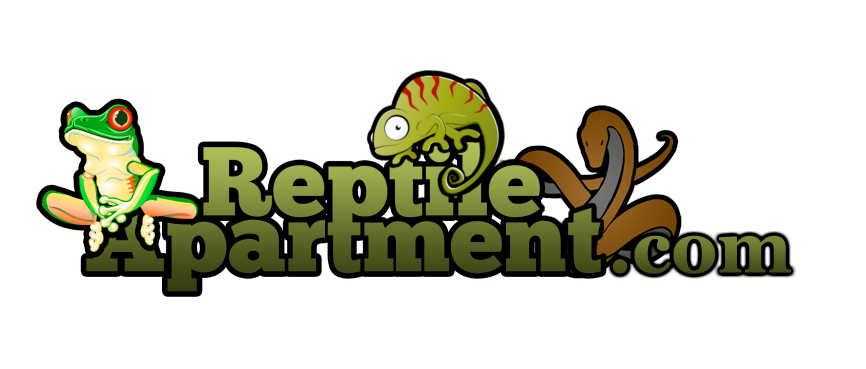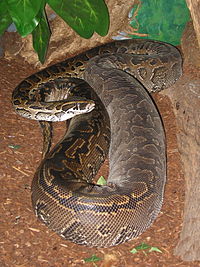Reptile Ocean New Brunswick Canada
Some of you will get this. Some of you won’t, and that’s all right. Someday you might. I was notified recently the American Alligator (Alligator mississippiensis) known to my ex-fiancée and I as ‘Junior’ was murdered. Funny that; did you catch what I said?
‘Murdered’ a word oft reserved for humans. Well, unless you’re some tree hugging weirdo that is. I have owned dogs and cats before as I grew up. My parents would’ve never allowed me to keep reptiles. Besides, I had no interest in reptiles then.
Yeah, that’s right. I didn’t get into reptiles or herpetoculture until my twenties. You can read about that here. This article is both about an alligator and me personally. Take what you will and say what you will. My only desire for this piece is that you learn a certain amount of respect for reptiles and those people who keep them as pets.
Crocodilians in Captivity
Our regular readers will remember, back in June I had the incredible opportunity to interact with crocodilians specifically ‘Junior’ and his companions at Reptile Ocean Inc. located in Campbellton, NB. a couple of hours away from my home. I closed that post with the thought I would be able share future interactions with ‘Junior’ and his enclosure mates with you our audience. I want to say I’m saddened by the news (of Junior’s demise) but the fact is this.
I’m beyond fucking pissed off!
I keep this site PG-13 for the most part and if my swearing offends you, I am indeed sorry, unless your over 13 years of age. If you’re over 13, get over it and move on. I’m kidding, of course; I’m trying to make light of something which has impacted me more than I could’ve known.
I’ve never been emotional per se about losing animals, neither my own ‘pets’ or otherwise. They were always ‘just animals’ I guess. Barbara J King touched my heart with her book How Animals Grieve (affiliate link). In it she explains that animals not just mammals but all animals experience emotion (specifically grief) on one level or another. It was after reading that book that I was given opportunity to go into the alligator enclosure and interact with Junior and his cage mates.
I’d always known (suspected) that animals experience emotions. I had not seen nor realized how much literature was available on the subject. Barbara, referred to numerous books which reflected her own findings. I of course, bought more books on the subject and applied the thoughts contained within when dealing with any animal.
This may seem an off topic for this piece I know, bear with me. I bring this up because people (pet owners) often attribute our own emotional state of mind to our pet(s) (known as anthropomorphism) pet owners are oft heard to say
“You can see it [emotion] in their eyes.”
I’ve handled hundreds, maybe even thousands of reptiles during my time as a keeper. I’ve experienced all manner of reptile behavior and I can say for myself right here and now is this.
‘Junior the American Alligator who I was allowed to work with at Reptile Ocean Inc of New Brunswick was an incredibly cognizant and I dare say an intelligent reptile.’
Government, Death, and Taxes
When I learned that Junior and his cage mates were euthanized I was in shock. Animals which had absolutely nothing to do with the prior incident were destroyed. Why would this happen was my first thought? I get the destruction of the snake involved. Whether I agree with it, is immaterial. Which I might add, punishing or executing the animal for being an animal and behaving as it would, is wrong. In this day and age, it would appear if there’s an animal involved in a human fatality. The animal is summarily destroyed in some visceral tête-à-tête. It’s being reported by many sources in the (herpetoculture) industry that one of the persons involved with the relocation of the remaining reptiles was Bry Loyst of Indian River Reptile Zoo. Persons close to the investigation stated to me personally, that it was in fact Bry Loyst who gave the order to destroy the animals.
Changing Stories
I spoke personally today with Bry Loyst of Indian River Reptile Zoo this morning. According to Bry, he was asked by the provincial government of New Brunswick to obtain the reptiles at the facility and then to find suitable places to relocate them. At least one facility in Nova Scotia Maritime Reptile Zoo reported to Reptile Apartment Group, that curator Mike Macdonald made it known to the authorities that all animals at the Reptile Ocean Inc facility had homes already arranged (via Maritime Reptile Zoo) for each reptile until permanent residents could be established.
That being the case why were the alligators destroyed? Reptile Apartment Canada had heard whispers that the reptiles weren’t released to any non-accredited facilities (regardless of experience level or having room) because the provincial government was now backtracking.
Bry Loyst confirmed
“Allegedly, the illegal animals (those not seen on the allowed list of reptile species) were given to Reptile Ocean Inc by a government agency.”
With that statement alone and few moments of thought it’s not a far stretch to see what has happened. A government agency, in its wisdom released illegal animals to a ‘non-accredited facility’ in a discretionary move. The African Rock Python (Python sebae) which was responsible for the tragic deaths of two children were one of those released to Reptile Ocean Inc. It would seem very obvious to me personally that if these animals were released to the facility then the government agents responsible for such actions saw no reason or safety issues.
Just so we are clear on this point. The non-accredited facilities (outside of Reptile Ocean inc.) are in fact permitted to legally own and work with the animals which were located in the premises. Also, it should be noted that while Reptile Ocean Inc was at one time permitted to own the animals. That permit was allegedly allowed to lapse and no follow-up was done according to Bry Loyst.
Now then, it would be a poor judgement call on the governments part to again release the animals to another non-accredited facility potentially leading to another incident.
When asked if this provincial mandate was what influenced the decision to not release the reptiles to non-accredited facilities Bry Loyst confirmed that’s indeed what had taken place.
“I called every accredited zoo in Canada and no one had room.”
The more Bry and I spoke the clearer the story became for me. Bry explained that zoos are built with a plan in place to house animals they are bringing into the site. Zoos are not rescue facilities for unwanted exotic pets. Zoos don’t plan for obtaining animals which are confiscated etc. So it would stand to reason that what Bry said is true. There was simply no room to place the alligators. That being the case, Bry was obviously unable to take the animals and the only other choice (imposed by the provincial government) was euthanasia.
Our well-known colleague Shawn Heflick of NatGeo Python Hunters has this add
“I have been involved in these kinds of things directly and indirectly and the Agencies/Government have ALWAYS (in my experience) deferred to the professionals they brought in with regard to animal dispositions.”
Unanswered Questions
Could Bry have prevented the murder of the alligators? Possibly. On that topic however, why would he push for saving them? Are they endangered? Are they at risk of endangerment in their native habit? Here’s the deal, before you run me up the flagpole.
I don’t agree with the euthanasia of any animal outside of putting down an animal which is suffering and cannot be saved through medical attention.
Was euthanasia the only option? Depends on who you speak with. In my observations, I would say ‘no’ that wasn’t the only option.
To be or not to be…Accredited
Many people have asked myself and some colleagues
“What does it mean to be accredited?”
Not being accredited and having no need to be accredited I wasn’t sure how to answer this.
According to Dictionary.com the term accredited is an adjective which means “(of a person, organization, or course of study) Officially recognized or authorized.”
The Association of Zoos and Aquariums from now on referred to by the acronym AZA explains accreditation here on their page. Very first thing that jumps off the page at me here is their ‘benefits’
Public Trust:
- Develops public confidence by means that an institution meets or exceeds current professional standards;
- Provides a publicly recognized badge signifying excellence in, and commitment to, such things as animal care, conservation and education; and
- Distinguishes AZA-accredited zoos and aquariums from “roadside zoos.”
Without going into the subject too much. Did you ever not attend a zoo because it wasn’t accredited? I haven’t. So accreditation means absolutely nothing to the public at large. Reading on, we learn that being accredited allows the facility to avoid legislation.
“Cuts red tape (exempts institutions from certain government requirements, primarily at the state level);”
Being accredited also gives the facility access to the Animal Exchange process wherein Zoo’s etc can exchange animals in breeding loans or temporary exhibition.
According to CAZA Animal Dispersal Policy Directions
“2. Live animals may be placed with animal suppliers having the qualifications and facilities to care for the animals in accordance with the Code of Professional Ethics of CAZA.”
After a cursory search of AZA and CAZA I have found NOTHING which states that the animals which were destroyed couldn’t have been released to a non-accredited facility.
I’m going to leave that as it is. I highly encourage you to read through the documentation and judge for yourself. Myself personally, I will mourn the loss of Junior the American Alligator whom was murdered. In my opinion, the animals were destroyed because they had no ‘attraction value’ to the accredited facilities.
Moving Forward
Many people within and outside of the herpetoculture industry are speculating on the impending legislation which might result from this horrible tragedy. I asked Bry about this as well and here’s his take on legislation.
“The government is out of session at the time until September which gives the herpetoculture industry time enough to gather a lobbyist. If herpetoculturists would donate $1 of every sale to organizations such as USARK we would be able to fight any legislation.”
Are we all doomed? No, I don’t believe we are doomed. I believe and implore the herpetocultural industry of Canada to immediately begin planning and working together to approach not only the local government but the entire country as a whole. Share the positive stories with the public, arrange meetings amongst ourselves put our egos aside and begin pre-emptive actions and plans to assist the government officials whom will be writing any laws with regards to this.


